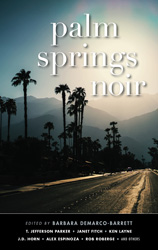Thoughts on subtitles
In Sunday’s New York Times Magazine, Ben Yagoda published an essay called “The Subtitle That Changed America.” In the piece, he bemoans the fact that subtitles have become so important to the marketing of a nonfiction book—in publishers’ eyes, anyway.
He says, “Elongated voguish subtitles are harmless enough, but I miss the time, not so long ago, when it was possible for a book to go out into the world with only a strong title followed by a few hundred pages of outstanding writing.”
I thought of my book and its subtitle and how all of the complaints I’ve heard about my book so far have centered around the subtitle: A Busy Woman’s Guide to Igniting the Writer Within.
Pen on Fire was the book’s title long before it sold to Harcourt. But the subtitle has gone through changes. I forget what it was when it sold—something about getting writing done in 15 minutes portions. But the marketing department worked on the subtitle for quite a while, hoping that it would help to draw certain readers, namely women.
I agreed to a great extent with Yagoda who says, “Nobody really notices subtitles. They are a sort of lottery ticket in the economics of nonfiction book marketing.”
Yet, when I began to hear the complaints—mostly from women who felt they couldn’t recommend the book to men because of the subtitle, I started to fret. I don’t want men to avoid the book because they think it’s a book for women.
I talked about this with Chris Baty, author of No Plot? No Problem! He said he was recommending my book all over the place, to men and women because the subtitle to him meant I was the busy woman and it was my guide. I love his take on it.
And so I’m curious: Do you pay attention to subtitles? How important are they? Did my subtitle put off–or attract–anyone, male or female?



 Support Indie bookshops and this site by purchasing books through my BookShop
Support Indie bookshops and this site by purchasing books through my BookShop
